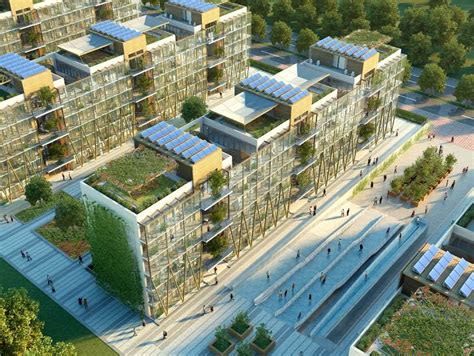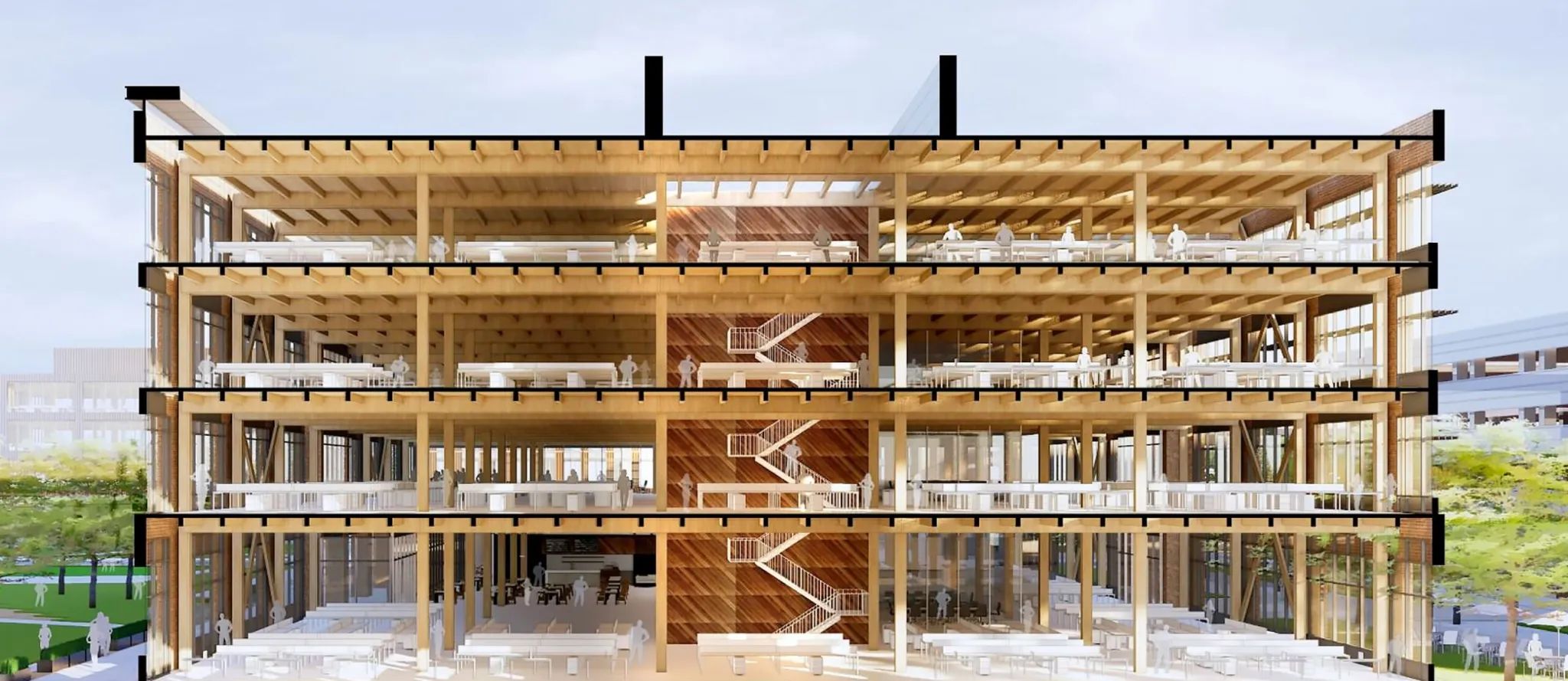2025 Real Estate Market Predictions: What Builders, Developers, and Property Managers Can Expect
As we approach 2025, the real estate market is poised for another dynamic year. Builders, developers, and property managers must remain agile in adapting to evolving trends and challenges. This article explores the most significant predictions for the upcoming year, offering actionable insights to navigate the landscape effectively.
Key Predictions for 2025
1. Increased Demand for Sustainable Housing
Sustainability continues to dominate the real estate sector. According to a recent report by the ULI Greenprint Center for Building Performance, tenants are increasingly prioritizing eco-friendly housing options. For instance, data shows that buildings with green certifications, such as LEED or BREEAM, experience up to 20% higher occupancy rates compared to non-certified counterparts. Additionally, the International Energy Agency (IEA) reported a 15% annual growth in renewable energy integration in residential properties worldwide over the last five years. One case study from Vancouver demonstrated how incorporating solar panels and water-saving fixtures reduced operating costs by 25% while attracting tenants willing to pay a 10% rental premium for sustainable living spaces. Builders who integrate energy-efficient designs, renewable energy sources, and sustainable materials will see higher demand. This shift is driven by a combination of tenant preferences for healthier living environments and regulatory pressures to reduce carbon footprints. Green certifications, such as LEED (Leadership in Energy and Environmental Design) and BREEAM (Building Research Establishment Environmental Assessment Method), are becoming key differentiators in the competitive real estate market. Moreover, energy-efficient housing provides long-term cost savings for both tenants and developers. Features such as high-performance insulation, water-saving fixtures, and smart home technologies not only reduce utility expenses but also enhance the marketability of properties. A recent survey by Deloitte highlighted that 70% of millennials and Gen Z renters are willing to pay a premium for sustainably built homes, signaling a lucrative opportunity for forward-thinking developers. Governments are also incentivizing green construction through tax credits, grants, and rebates. Builders who capitalize on these programs can reduce upfront costs and accelerate project timelines. For instance, the Canada Greener Homes Initiative offers substantial rebates for energy-efficient renovations and new builds, enabling developers to align profitability with sustainability.
2. Technological Integration in Property Management
The adoption of PropTech will accelerate as landlords and property managers seek to streamline operations. Platforms like RentPERKS, which leverage AI-driven tools, automation, and geofencing technologies, will become essential for efficient property management. These technologies enable streamlined operations by automating routine tasks such as rent collection, maintenance scheduling, and tenant screening. For example, RentPERKS’ geofencing technology optimizes staff management by assigning tasks based on proximity, reducing travel time and costs. Additionally, AI-driven analytics provide actionable insights into tenant behavior, allowing property managers to tailor services and improve tenant satisfaction. A notable case study from RentPERKS demonstrated a 30% increase in tenant retention and a 20% reduction in operational costs for a mid-sized multi-residential property after integrating these technologies.
We reached out to Jason Duncan, EVP of RentPERKS Technologies Inc., who emphasized, “2025 will be a pivotal year for technology adoption in property management. Those who leverage AI and automation will outpace their competition.”
3. Shifting Market Dynamics in Multifamily Housing
New multifamily developments may face higher vacancy rates, particularly in urban cores. According to data from the CMHC’s 2024 Rental Market Report, urban areas like Toronto and Vancouver have already seen vacancy rates for new developments rise by 2% compared to pre-pandemic levels, while suburban and smaller markets are experiencing higher demand. This shift is driven by remote work trends, which have allowed tenants to seek affordable options outside city centers. Additionally, regions with a high supply of luxury units, such as downtown Calgary, are seeing slower absorption rates as tenants prioritize value over premium features. This trend stems from changing tenant preferences favoring affordability and community-oriented living. Property managers should consider offering incentives, like integrated rewards programs, to boost occupancy rates.
Reference Article: CMHC’s 2024 Rental Market Report
4. Economic Uncertainty Impacting Construction Costs
Inflationary pressures and fluctuating material costs will challenge builders in 2025. Key materials like steel and concrete have seen price increases of 15% and 12% respectively over the past year, according to the National Association of Home Builders (NAHB). Meanwhile, lumber costs have stabilized but remain 30% higher than pre-pandemic levels. In regions like California, rising energy prices are compounding construction expenses, further straining budgets. For example, a recent multifamily project in Toronto reported a 20% cost overrun due to unexpected surges in material pricing and supply chain delays. Builders who diversify their suppliers and explore alternative materials such as cross-laminated timber (CLT) and recycled steel are better positioned to mitigate these challenges. Developers should focus on value engineering and exploring alternative construction materials to maintain profitability. Industry Experts advise that, “Having a flexible procurement strategy and leveraging economies of scale will be critical in mitigating financial risks.”
5. Policy Changes and Regulatory Shifts
Governments are likely to introduce stricter regulations focusing on rent control and environmental compliance. For example, Ontario recently proposed changes to its Residential Tenancies Act aimed at extending rent control measures to newer properties, while California has introduced tighter emissions standards for new developments under its updated Green Building Code. These policy shifts underscore the need for developers and property managers to stay agile in addressing compliance requirements while adapting to evolving market conditions. Staying informed on legislative updates will help property managers and developers avoid penalties and capitalize on available incentives.
Source: Canada’s Housing and Landlord Policy Updates 2025
Strategic Recommendations for Industry Leaders
Questions for Industry Leaders:
- How are you preparing for potential regulatory changes in 2025?
- What strategies are you employing to address rising construction costs?
- How do you see technology reshaping your property management processes?
- What role does sustainability play in your development plans for the coming year?
We encourage readers to share their thoughts or connect with experts via RentPERKS for deeper insights. Connect to the FORM to submit your feedback as part of the report.
Conclusion
The real estate industry is on the brink of transformative changes in 2025. By focusing on sustainability, embracing technology, and adapting to economic and policy challenges, builders, developers, and property managers can position themselves for success. RentPERKS is here to support your journey with innovative solutions tailored to the evolving market.
For more insights or to schedule a consultation, visit RentPERKS Technologies Inc..
Contact Us:
For feedback, article contributions, or interview opportunities, reach out to newsletter@rentperks.com.
More info available at https://rentperksplatform.com/
Links to Other Published Articles:
The Rise of Mixed-Use Developments... [LINK]
Why Older Multifamily Assets Outperform Newer Buildings... [LINK]
Transforming Property Management Through Advanced AI Integration... [LINK]
Property management fees, Property management cost, Property management services, Property management pricing, Property management contracts, What is property management, How to start a property management company, Property management tips, What does a property manager do, How much do property managers make, Vancouver property management, Vancouver rental property management, Vancouver property management services, Toronto property management, Toronto rental property management, Toronto property management services, Calgary property management, Calgary rental property management, Calgary property management services










